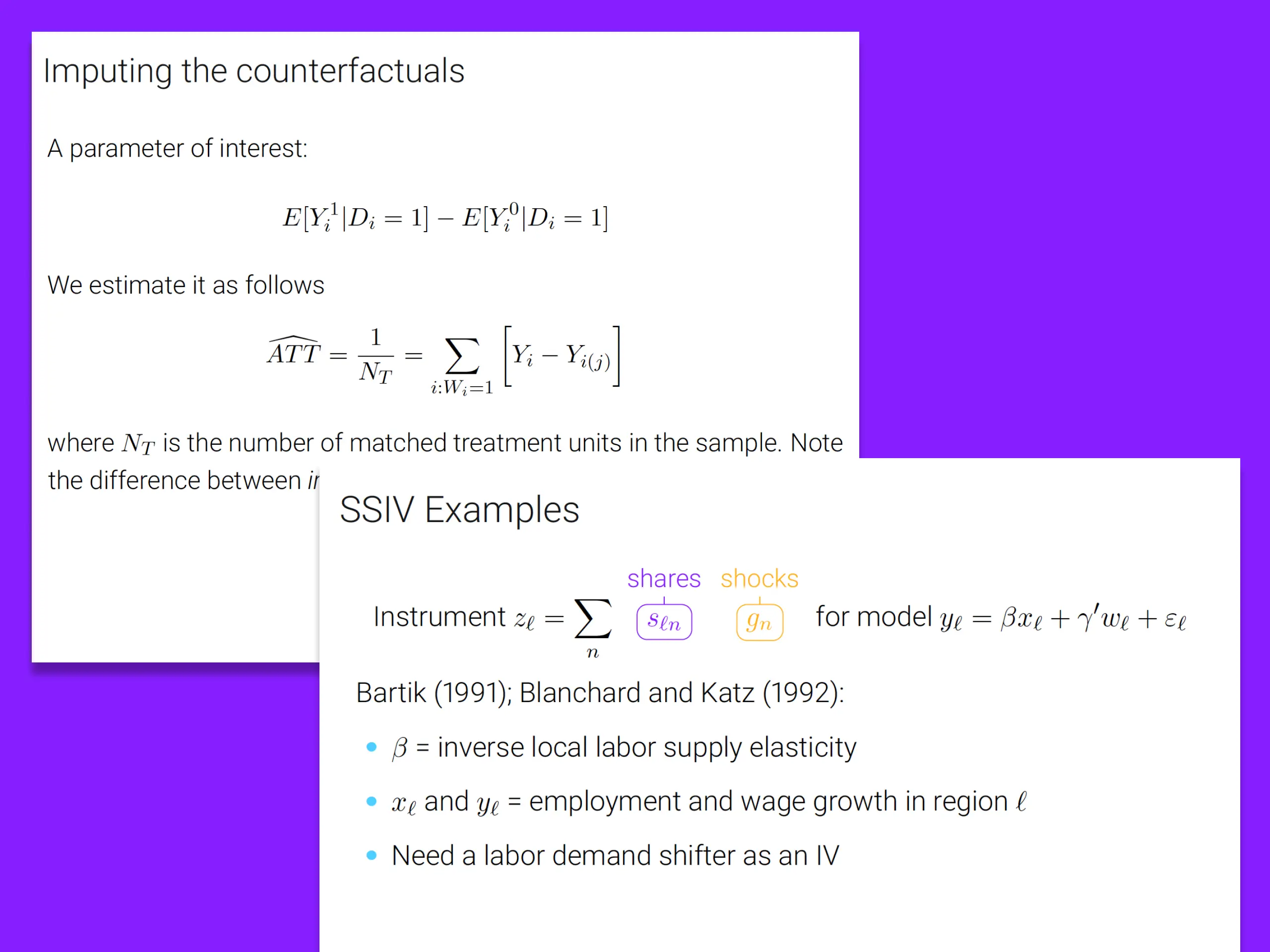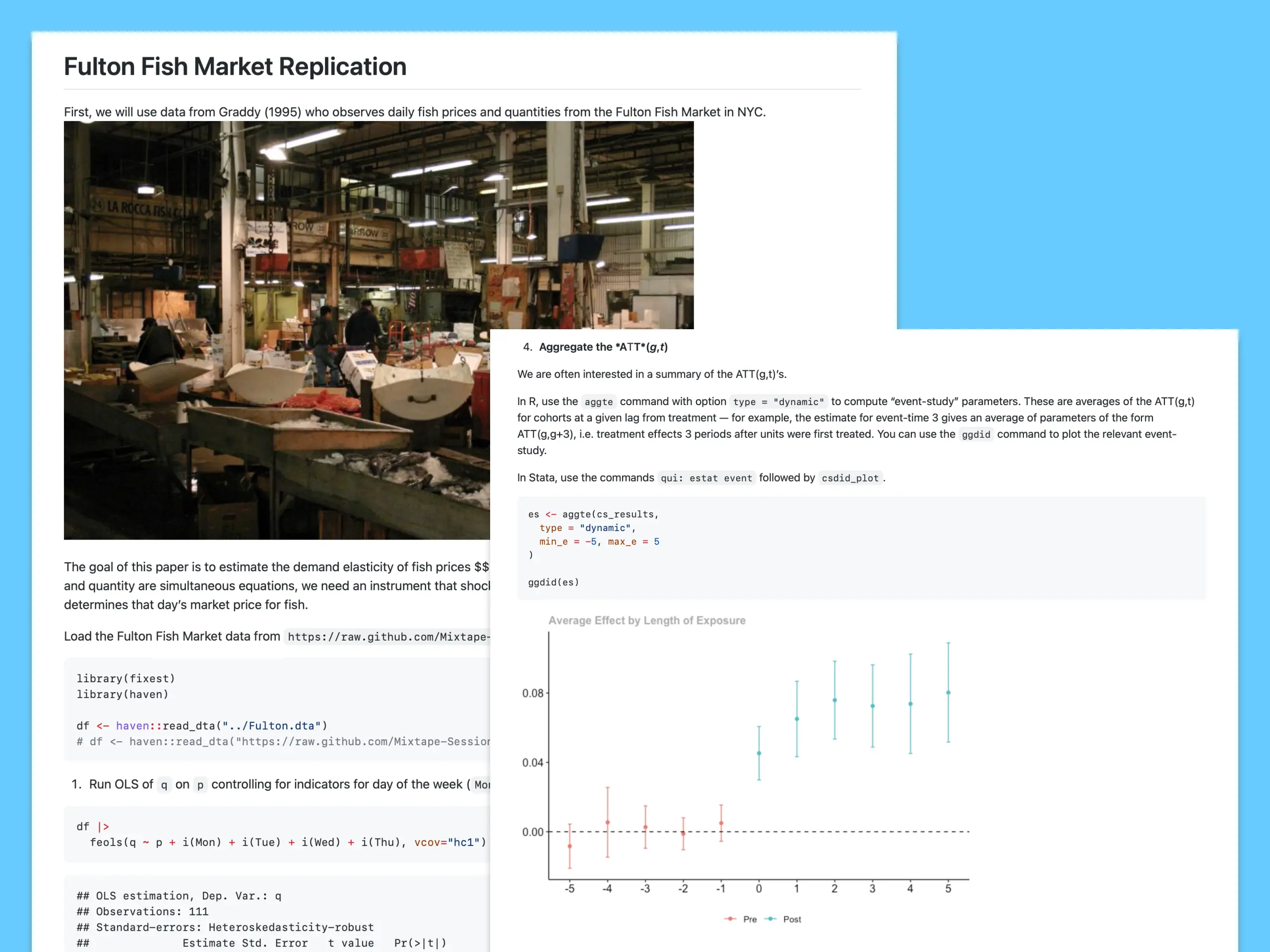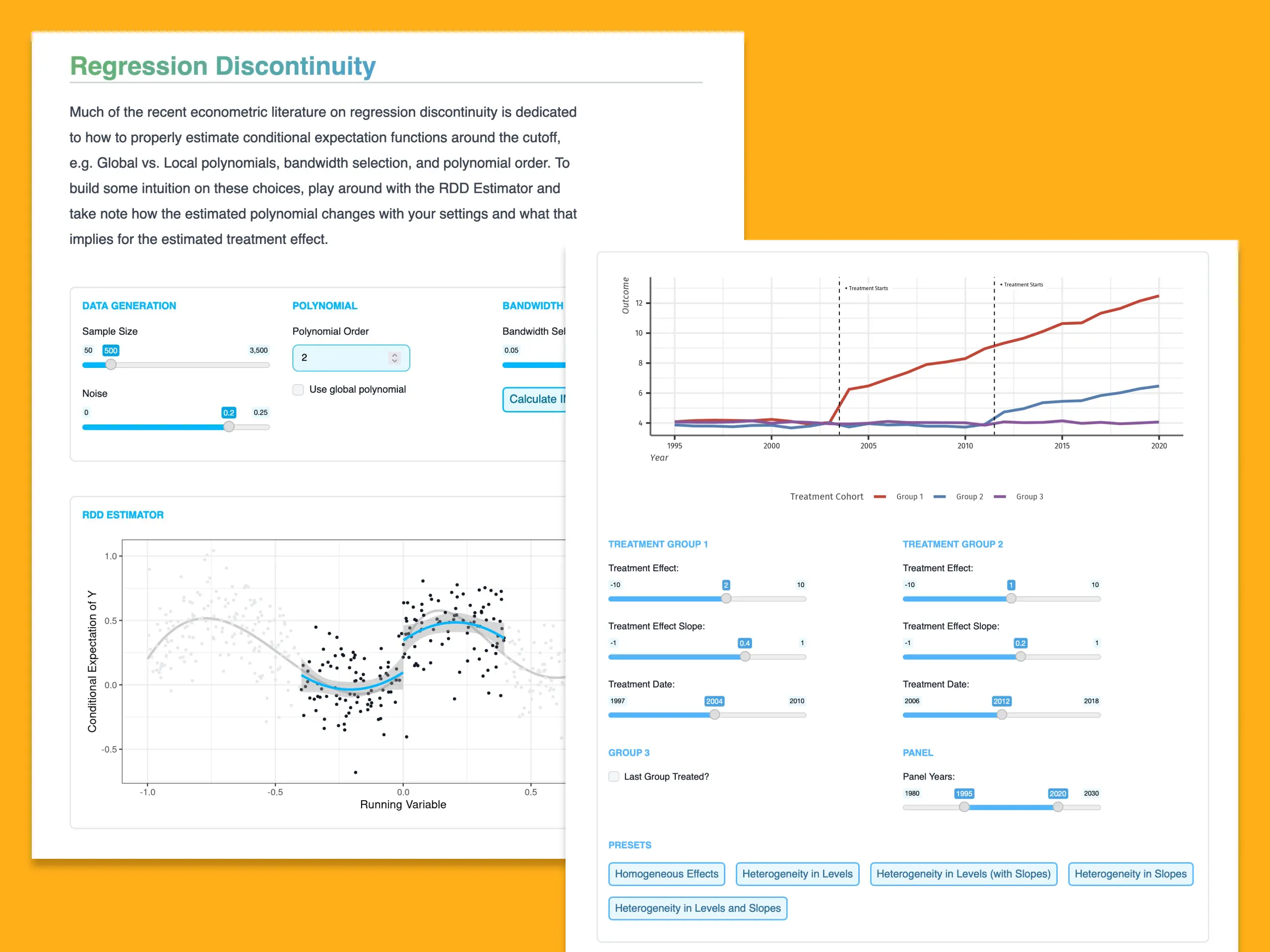Course Library
After you take the course, all the material is yours. We provide you with the slides, the app, the coding exercises, and video recordings to keep. You can view the course material for free at our GitHub.

Welcome to Mixtape Sessions
The sessions will be led by researchers at the frontier of causal-inference methods.
Our workshops feature exercises to teach practical skills that are ready to generate value for your research or company.
Attending our workshop won't break the bank. We even offer student pricing!
After you take the course, all the material is yours. We provide you with the slides, the app, the coding exercises, and video recordings to keep. You can view the course material for free at our GitHub.

We believe in the learning power of active-learning. For all of our courses, we will all get our hands dirty with real data to implement the methods you are using.

"A picture is worth a thousand words" is true for causal inference too. Our flagship courses come with interactive applications for students to explore aimed at proving intuition.


Our founder Scott Cunningham is the author of Causal Inference: The Mixtape. Causal inference encompasses the tools that allow social scientists to determine what causes what. In a messy world, causal inference is what helps establish the causes and effects of the actions being studied—for example, the impact (or lack thereof) of increases in the minimum wage on employment, the effects of early childhood education on incarceration later in life, or the influence on economic growth of introducing malaria nets in developing regions. The book introduces students and practitioners to the methods necessary to arrive at meaningful answers to the questions of causation, using a range of modeling techniques and coding instructions for both the R and the Stata programming languages.
You can read the entire textbook for free online here. Scott also writes on a blog covering methods on substack.